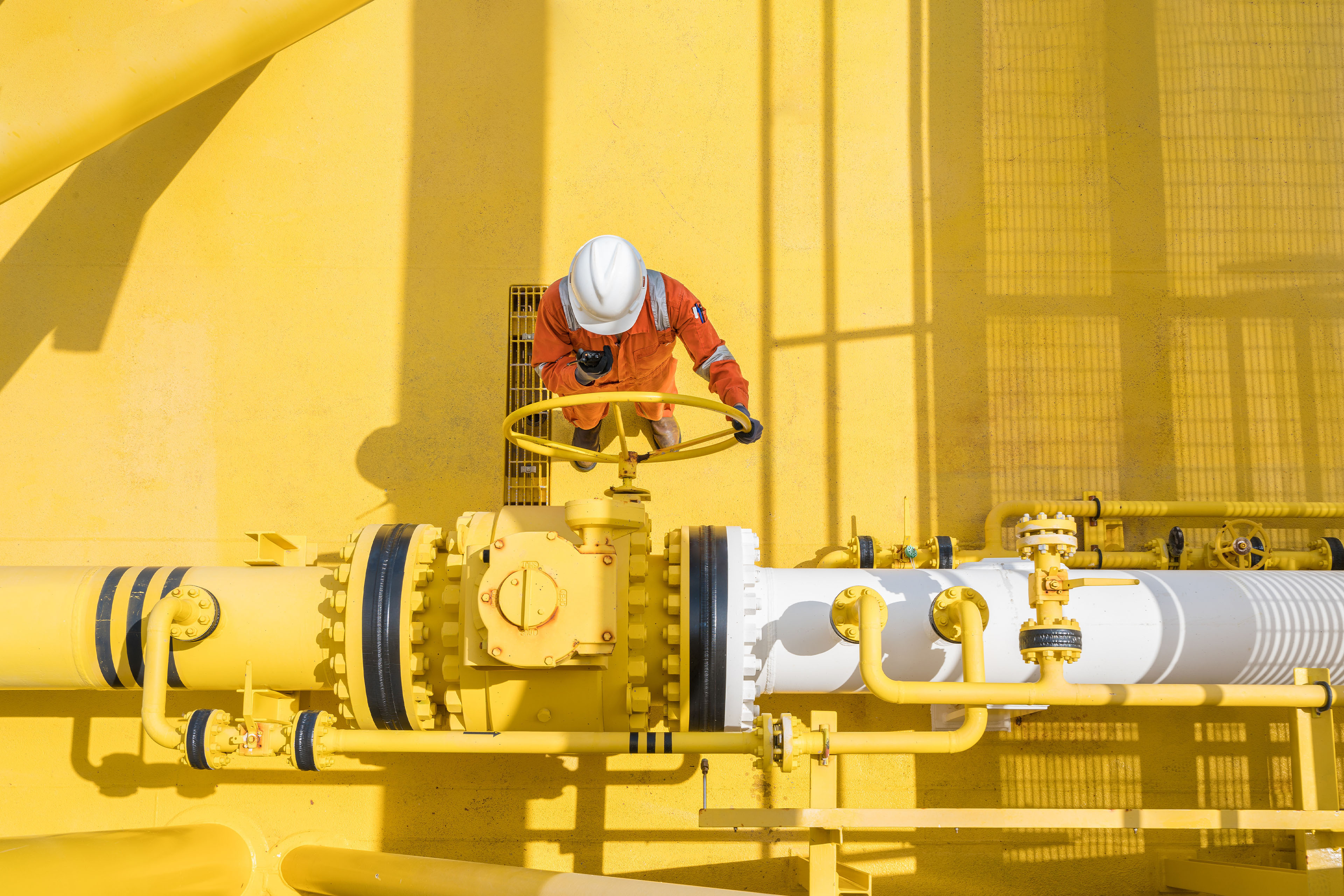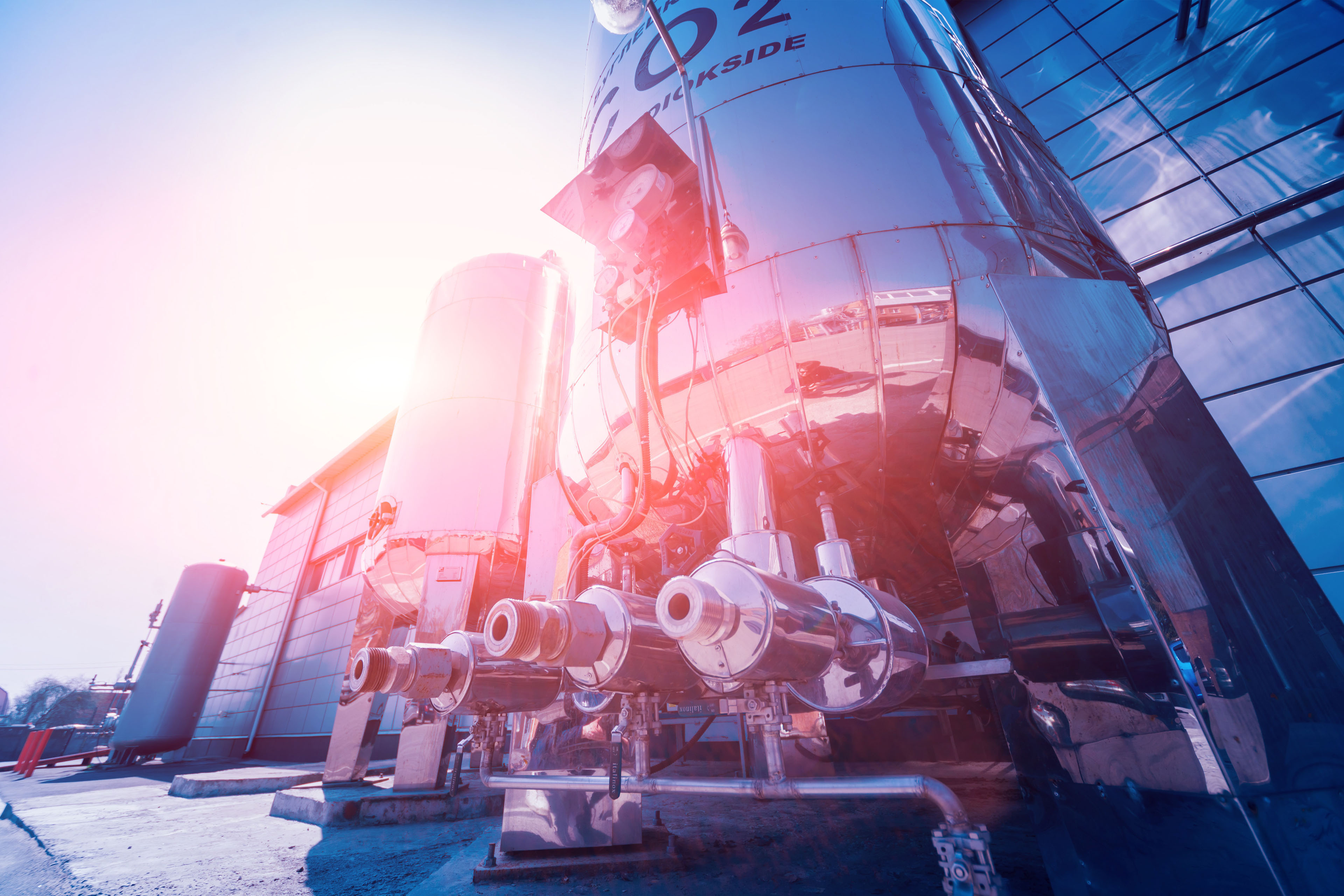EY refers to the global organization, and may refer to one or more, of the member firms of Ernst & Young Global Limited, each of which is a separate legal entity. Ernst & Young Global Limited, a UK company limited by guarantee, does not provide services to clients.

Bridging the gap between fossil fuel demands and our green-energy future is possible for these companies. Here are four actions to take.
In brief
- Consolidation for greater operational efficiencies (and less competition for investment capital) should be explored.
- Acquisitions can help US independents play in Europe’s liquefied natural gas market amid the energy crisis there.
- Independents should also capitalize on their capabilities that overlap with sustainability needs, such as carbon capture and storage.
Few industries had such a profitable first half of 2022 as oil and gas independents — and few face such existential threats over the medium to long term. Even as their stock prices initially rocketed upward before fading, they couldn’t take a victory lap: unlike during prior booms, investors just want capital returned to shareholders, and the pool of available dollars is favoring other sectors with higher and more consistent returns.
Recent EY analysis of the independents market over 2021 tells the story: payments of dividends and share repurchases increased 122%, from $8.1 billion in 2020 to $18.1 billion in 2021, helping to drive up stock prices for consistent returns. This pressure to manage costs in favor of repurchases led to a level of capital spending for the year that only marginally improved from the doldrums of 2020 — and still was lower than any year between 2010 and 2019.
So where does that leave these companies, whose product is seemingly more in demand than ever amid the war in Ukraine, yet so out of favor with sustainability-minded regulators and investors? Squeezed between the demands of today and the needs of tomorrow, independents should look to four actions to navigate the energy transition with confidence.
Chapter 1
Action #1: Explore consolidation
Efficiencies aren’t the only benefit — scale, talent and new ideas can be infused.
Independents should be looking for operational efficiencies through structurally beneficial consolidations. Only so much cost can be wrung out of a company’s operations without turning into a game of attrition. Yet over 2021, M&A deals focused mostly on purchasing assets: acquisitions of proved and unproved properties represented 65% of the total capital expenditures in the year and the highest level of acquisition capital expenditures since our study began in 2017.
Another benefit of consolidation is acquiring much-needed talent. Overall, operators are losing people, which may delight some boards and CEOs in the short term as labor costs decline. However, the subsector is struggling to keep workers with specialized, industry-specific skill sets, like in production revenue accounting, and that will ultimately hinder its ability to thrive in the years ahead.
Further, companies are finding that many of their systems and technologies are out of date and do not provide the data needed to keep up in areas such as tax and finance, ESG reporting, and supply chain and procurement. For example, in a 2022 EY Tax and Finance Operations survey, 74% of oil and gas companies mentioned they have plans to either do a major ERP upgrade or look into keeping fewer ERP instances in the next two years.
With scarce resources in a persistent cost-cutting environment, the fight for investment internally becomes more cutthroat, and innovation suffers. This is particularly problematic because deploying digital technology and data analytics to improve asset and operational performance is imperative. Consolidation immediately infuses a stronger entity with scale, new ideas and, hopefully, capital for accretive bolt-on or larger core acquisitions.
Chapter 2
Action #2: Elevate the ecosystem
Cost-effective partnerships and consortiums have replaced in-house approaches for data and technology.
With the acceleration of technology in the sector, there is significant opportunity to operate more efficiently. In order to pave the way for more impactful performance and profitability, independents should rethink how they access and use digital data.
A key obstacle for greater digital innovation has been the historical reluctance to share information with third-party technology providers, for fear of maintaining competitive advantage and sharing vulnerable data. However, without experienced partners on the technology side, developing and managing complex data systems continue to be a challenge.
Independents should be making strategic moves toward technology partnerships and large-scale consortiums. These ecosystem alliances have the potential to transform operations and deliver increased value. By effectively leveraging data through modern enterprise-wide technology platforms, companies would ultimately streamline operations and cut costs.
The traditional in-house approach is a way of the past. Building a more agile data marketplace, with recognized standards across the industry, could go a long way toward enabling next-level innovations. By teaming together, energy and tech companies can create enterprise-wide solutions toward long-term value creation and the race to decarbonize.
Chapter 3
Action #3: Evaluate natural gas through a global lens
Turmoil in Eastern Europe has upended market norms in a way that can favor US players.
Strategic acquisitions in international markets should also be on the table amid a watershed time for liquefied natural gas (LNG). As recently as late 2021, US producers still saw European gas market conditions as either transitory or irrelevant to the US industry, but Russia’s war against Ukraine has turned that logic on its head. The natural gas market remains fairly localized, with massive differences in current prices between US (generally low), Europe (significantly higher) and Asia (not as high but feeling domino effects from the conflict).
As the top producer of natural gas in the world, the US is seen as a source of new LNG, but significant infrastructural hurdles exist to globalize supply. Providing enough feedstock to new liquefaction plants without putting undue pressure on domestic markets will require new investment.
Traditionally, most upstream LNG players have preferred long-term contracts if they have ample supply and some flexibility of source location. Favorable economics for gas producers may persist as the conflict on Europe’s eastern borders shows no signs of abating. Midstream players with strategically placed assets will also be heavily utilized in the years to come. With historically stable business models and consistent demand of natural gas, midstream companies are likely to achieve competitive advantage in the long-term processing and transporting of natural gas. Strategic-minded independents with available capital should consider what acquisitions could set them up to capitalize on the opportunity.
Chapter 4
Action #4: Enable ESG as a core competency
Independents have a role to play in the decarbonization transition, especially thanks to government incentives.
Investors are heavily focused on enhancing portfolios in renewable or green-focused directions, as well as the topic of environmental, social and governance (ESG) more broadly. An independent’s strengths may overlap with those required to succeed in these growing fields, as well as in wind and solar:
- Electric vehicles: Strong brands, global operational infrastructures and retail networks can be instantly plugged into the future of mobility, a new and growing consumer base, and the next evolution of smart cities and infrastructure. Those with existing real estate are positioned to resolve two top consumer concerns about electric vehicles: anxiety about the range of a battery charge and the shortage of charging stations.
- Biofuels: Governments are encouraging early investment in processing waste to produce energy, contributing toward the growth of biogas. Renewable natural gas has ballooned over the past few years, with the number of projects increasing. Within the US, California is a key market; India, China and Japan are expected to drive growth overseas.
- Carbon capture and storage (CCUS): By capturing emissions from fossil power generation and industrial processes for underground storage and reuse, this technology is an important bridge in our decarbonization transition. Replacing baseload coal with a combination of renewables and gas yields is seen as a quick and efficient way to reduce carbon emissions. Global investments in this area are expected to rise substantially in the next few years and the potential market is huge.
- Hydrogen: Hydrogen is gaining preference as a fuel for road, maritime and air transport as it converts, stores and then releases energy without producing greenhouse gases or ground-level ozone — at least in its green variety — and its only output is water. The blue variety relies on coal as a fuel source with carbon capture technology lowering the carbon dioxide emissions. While not a new technology, hydrogen has become popular with investors, and the gradual decline in capital expenditures in renewable energy signifies improvement in operational efficiency.
To add, the recently enacted Inflation Reduction Act of 2022 (IRA) includes roughly $369 billion in climate and energy provisions, including many for new or developing technologies adjacent to the core competencies of many oil and gas companies. These provisions are designed, in part, to incentivize and accelerate the buildout of energy transition and renewable energy asset classes and operations. For example, the IRA contains favorable (and investor-friendly) provisions related to carbon capture use and sequestration, hydrogen, geothermal, renewable natural gas, clean fuels, electric vehicles, and many others.
As the world fitfully tries to advance on its long journey to decarbonization, today’s oil and gas market offers independents perhaps the last, best chance to refill their tanks. Immediate plays include capturing greater efficiencies and new talent and strategies through acquisitions and thinking globally on LNG, while positioning themselves over the long term in emerging ESG categories.
Summary
Independents have played an enormous role in providing the fuel for generations of economic growth, and with urgency and reinvention, they can continue to serve as engines for future generations as well.
How EY can help
-
EY Digital Energy Enablement Platform, or EY DEEP, combines Microsoft’s scalable, enterprise cloud platform with EY leading industry and technology experience to provide the tools defining the future of exploration.
Read more -
Discover how EY's global renewables team can help your business transition to the world of renewable energy.
Read more
Related articles
What if oil and gas operators view ESG as a catalyst for innovation?
Expectations around decarbonization calls the oil and gas industry to reinvent itself again to meet growing energy demands.
Why carbon capture just became an economic fastball
Carbon capture use and sequestration (CCUS) businesses stand to reap several benefits from the recently signed Inflation Reduction Act of 2022. Find out more.





